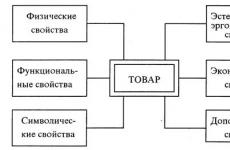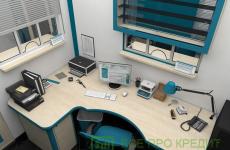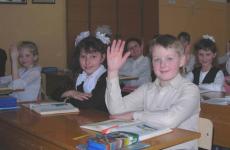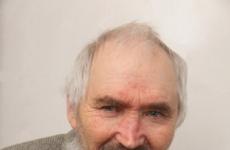Ground transport technological means reviews. Transport specialties
Education in the transport specialty allows graduate students to improve and analyze existing transport systems, create new projects for the implementation of modern Vehicle. Separate professions are devoted to safety in the transportation of goods, transportation of passengers (specialty transport security). You can enroll in training in such areas in specialized universities with narrow-profile training of specialists. Enrollment is carried out on the basis of secondary education (grade 11).
Specialty "vehicles, technologies and processes": goals and features of training
The purpose of training in the specialty "Special Purpose Vehicles" is to review existing special purpose vehicles, a thorough analysis of their components, the rules for their interaction. Students are offered theoretical and practical classes based on familiarization with special-purpose vehicles (for work in the service sector, forestry and agriculture, and construction).
The result of training is the ability to control existing technical installations for the production and assembly of models. The prospect of the program is the development by qualified specialists of new units and installations for the manufacture of efficient special vehicles. You can enter this specialty with the code 05/23/02 in the following educational establishments: MADI, Kurgan State University.
Many students are interested in the technology of transport processes, specialty - what is it. The basis of this program is the study of the equipment used and the quality control of its production and use. An important part of the training is familiarity with the data, according to which the study of the safety and effectiveness of models is carried out. Special attention is paid to studying the correspondence of the transport used to the result obtained (taking into account costs). You can get a specialty on 23.03.01 at the universities: Angarsk State Technical University, Tyumen Industrial University.
Specialties "Transport construction" and "logistics": distinctive features of the directions
Considering transport systems, a specialty in the context of construction, it is necessary to pay attention to the direction of development of installations for the manufacture and assembly of special equipment. During the course of study, students will be introduced to the main criteria for compiling project documentation and estimates, determining the efficiency of assembly of nodes and their reliability, safety.
Bridges and transport tunnels are studied separately, a specialty that provides for the release of engineers who are ready to improve and refine modern crossing systems. The correctness of the selection of materials, drawing up drawings affects the creation of durable supports, interchanges. Admission to the specialty 08.05.03 is available in the following universities: Bryansk State University of Engineering and Technology, SPbGASU.
Students can also study the transport business of logistics, a specialty that considers methods for improving existing routes, optimizing transportation parameters (taking into account the purpose and parameters of a particular technique). Qualified specialists should be able to rationally select technical means for carrying out narrow-profile work, carrying out transportation (general purpose, passenger, dangerous). It is taught in the last courses of the specialty 23.03.01 and is its profile direction.
Specialty hoisting and transport construction and road machines
Studying the specialty of transport technology, you can work in the future at car factories, private engineering enterprises. When studying in the specialty 23.03.03 "Operation of transport technological machines and complexes" students also get acquainted with existing installations for the manufacture, assembly, paint, diagnostics and repair of equipment. The main goal of the course is to train specialists who are ready to service and improve the applied installations in the future.
When studying special vehicles, students will be prepared to work with the transport itself. The basis of the program will be the study of vehicle nodes, their interaction. Separately, the rules for the management and maintenance of equipment are studied. Qualified students in the future receive the profession of a machinist, operator or mechanic. You can get a specialty on February 23, 2004 after the 9th grade at the universities: Berezniki Civil Engineering College, Pushkin Forestry Engineering College.
Specialty "ground transport technological means"
Mastering the specialty 23.05 01 ground transport and technological means, students will complete a program that includes:
- study of technologies for the development of TS;
- features of drawing up drawing and design documentation;
- manufacturing rules and engineering requirements for different types machines and their elements.
You can get training in the specialty 23.05.01 and become an engineer, an operator in the following universities: Lipetsk State Technical University, Tver State Technical University.
Upon completion of training in these specialties, practice is carried out at automobile plants. To receive a diploma, students must successfully defend a written thesis (on the topic of their specialty). In universities, the cost of education is more than 50-90 thousand rubles. Education in motor transport technical schools is somewhat cheaper (about 30-40 thousand rubles a year).
Perhaps you will be interested.
Description
The educational program at the specialist level provides for the development of the following subjects:
- descriptive geometry;
- applied mathematics;
- technology of structural materials;
- resistance of materials;
- research and testing of ground means of transport and technological type;
- basics of design;
- machine parts;
- engineering graphics;
- theory of machines and mechanisms;
- calculation and design of transport installations;
- basics of design;
- theoretical mechanics.
Whom to work
Specialists will be able to work at transport enterprises or in repair and maintenance organizations. These include not only the automotive industry, but also railway complexes, among which the profile in the maintenance of locomotives is especially relevant. Also, former students often find work in organizations engaged in the production of ground, lifting and construction equipment. Specialists of this profile are regularly required in companies engaged in the construction of highways, since their balance, as a rule, includes a large number of expensive technology. It requires compliance with safety requirements and standards and proper operation.
Profile: lifting and transport, construction, road facilities and equipment
Full-time education:study period: 5 years
budget places: 20
study period: 6 years
budget places: 8
Entrance tests: m, f, rya
Description of the educational program
Dominant activities of the NTS specialist:
- research;
- design and engineering;
- production and technological;
- organization of operation and repair of machinery and equipment;
- development of transportation, technical and operational work;
- service of construction, road, transport and special equipment;
- supervision of the safe operation of hoisting and transport machines.
Upon graduation, graduates work in design, research and development enterprises, in construction organizations civil, industrial, road, oil and gas complex, at machine-building enterprises and service enterprises of all types of machines, in organizations of Rostekhnadzor, in dealerships and industrial commercial organizations.
Possible graduate job positions
Constructors of various levels, equipment maintenance mechanics from line to main and leading. Engineers and chief engineers of enterprises, managers and leading specialists of organizations.
A specialist in the direction of training (specialty) "Ground transport and technological means" must solve the following professional tasks in accordance with the types professional activity:
1. Research activities:
- Conducting an analysis of the state and development prospects of ground transport and technological means, their maintenance and complexes based on them.
- Carrying out theoretical and experimental scientific research to search for and test new ideas for improving ground transport and technological means, their technological equipment and complexes based on them.
- Technical and organizational support of research, analysis of results and development of proposals for their implementation
2. Design and development activities:
- Determination of ways to achieve the goals of the project, identification of priority solutions to problems in the production, modernization and repair of ground transport and technological facilities, their technological equipment and complexes based on them.
- Development of options for solving the problems of production, modernization and repair, ground transport and technological means, analysis of these options, forecasting the consequences, finding compromise solutions in conditions of multi-criteria and uncertainty
- The use of application programs for calculating units, assemblies and systems of transport and technological means, and their technological equipment
- Development of design and technical documentation for the production of new or modernized samples of ground transport and technological means, and their technological equipment using information technology.
- Development of specifications, standards and technical descriptions, land transport - technological means, their technological equipment.
- Comparison of the criteria for evaluating the designed units and assemblies, taking into account the requirements of reliability, manufacturability, safety, environmental protection and competitiveness.
3. Production and technological activities
- Development of technological documentation for the production, modernization, repair and operation of ground transport and technological means, their technological equipment.
- Control over the parameters of technological processes and the quality of production and operation, ground transport and technological means, their technological equipment.
- Carrying out standard tests of ground transport and technological means, their technological equipment.
4. Organizational and managerial activity.
Name of the main basic disciplines:
- Dynamics of handling, construction, road facilities and equipment,
- Construction and road machines,
- Continuous transport machines,
- lifting machines,
- Mechanical engineering technology, production and repair of hoisting-and-transport, construction and road machines,
- Operation of hoisting-and-transport, construction and road machines,
- Structural mechanics and metal structures,
- Machine parts and design basics,
- Hydraulics and hydropneumatic drive,
- theoretical mechanics,
- Theory of mechanisms and machines,
- Strength of materials,
- Descriptive geometry.
Student practice
Students in without fail undergo educational and industrial practice, which can be carried out at enterprises, organizations, departments and laboratories of the university. A section of educational practice can be a research work.
Demand in the labor market
Upon graduation, graduates work in design, research and development enterprises, in construction organizations of the civil, industrial, road, oil and gas complex, in machine-building enterprises and service enterprises of all types of machines, in organizations of Rostekhnadzor, in dealer firms and industrial commercial organizations.Entering the transport and technological institute, and then, after graduating from it, you will solve for yourself the most important task that will confront you after graduation: where to get a job? It is wrong not to think about future employment when choosing a specialty for admission, since you can get, from your point of view, the best specialty, but then become unemployed. Specialties of the transport and road profile are in demand in the labor market, moreover, last years we do not fully meet the needs of enterprises in specialists.
Learn more about our specialties:
Specialization "Lifting and transport, construction,
road facilities and equipment»
- transport, construction, agricultural, special engineering;
- operation of equipment, secondary and higher professional education.
- ground transport and technological means with combined power plants;
- handling, construction, road facilities and equipment;
- mining vehicles;
- means and mechanisms public utilities;
- regulatory and technical documentation;
- standardization systems, methods and means of testing and quality control of products.
- research;
- design and engineering;
- conducting an analysis of the state and prospects for the development of ground transport and technological facilities, their technological equipment and complexes based on them;
- carrying out theoretical and experimental scientific research to search for and test new ideas for improving ground transport and technological means, their technological equipment and complexes based on them;
- development of options for solving the problems of production, modernization and repair of ground transport and technological facilities, analysis of these options, forecasting the consequences, finding compromise solutions in conditions of multi-criteria and uncertainty;
- use of application programs for calculating units, assemblies and systems of transport and technological means and their technological equipment;
- development of design and technical documentation, specifications, standards and technical descriptions of ground transport and technological means and their technological equipment;
- organization of operation of ground transport and technological means and complexes;
- organization of technical control in the study, design, production and operation of ground transport and technological means and their technological equipment;
- drawing up plans, programs, work schedules, estimates, orders, applications, instructions and other technical documentation.
In the laboratory of the department of PTiDM
The specialty is classical, basic, which is in demand in almost all industries. There is not a single industrial enterprise where the labor of engineering and technical workers of this profile would not be in demand. Therefore, graduates of the specialty are in demand in the labor market and are successfully employed.
When preparing specialists at the graduating department, an innovative, intensive educational program using the computer-aided design system APM WinMachine. In this system, the student is trained in all major disciplines. The wide possibilities of this domestic CAD allow even in student years to solve complex design problems. This system is successfully mastered even by high school students in the framework of the subject "drafting". Education is conducted on a full-time (5 years), part-time (6 years), budgetary and paid forms.
Specialty 23.05.01 "Ground transport and technological means"
Specialization "Technical means of environmental management and protection in emergency situations»
Duration of training - 5 years, qualification - engineer.
Area of professional activity:
- environmental structures;
- bodies of technical audit and certification, supervision of environmental safety; departments of civil defense and emergency situations of enterprises and organizations of various forms of ownership;
- design and research institutions; small and medium-sized enterprises in the field of complex processing of technical materials.
Types of professional activity:
- scientific - research;
- design and engineering; production and technological;
- organizational and managerial.
Tasksprofessional activity:
- development, research, operation technical means environmental management and protection in emergency situations;
- organization and creation of technological complexes, energy-saving machines and equipment for the processing of man-made materials and the production of environmentally friendly building products;
- the use of modern information technologies in the design of technical means and technological complexes.
Specialty 08.05.03 "Construction, operation, restoration and technical cover of roads, bridges and transport tunnels »
Duration of training - 5 years, qualification - engineer.
Area of professional activity:
- spheres of science, engineering and technology, covering a set of problems related to the construction, operation, restoration and technical cover of transport facilities.
Objects of professional activity:
- surveys, design and construction of roads, airfields, bridges and transport tunnels;
- current maintenance, repair, reconstruction and restoration of transport facilities;
- production of road building materials, manufacture of bridge and tunnel structures;
- resources of technical cover of transport structures, planning and organization of their use.
A graduate with the qualification "engineer" is able to:
- to organize the performance of works on the construction, reconstruction, repair and current maintenance of the highway in order to ensure the quality and reliability of its operation, using the methods of technical control in order to ensure traffic safety;
- substantiate rational methods of technology, organization and management of the construction and reconstruction of highways and develop projects for the organization of construction and production of works, taking into account the design and technological features and natural factors affecting the conduct of construction and installation works;
- develop and implement projects for the reconstruction and repair of the highway, taking into account topographic, engineering and geological conditions and environmental requirements;
- ensure the introduction of progressive designs and resource-saving technologies for maintenance motor road, its structures and facilities;
- organize monitoring and diagnostics of the highway, its structures and facilities, using modern technologies, control and measuring and diagnostic tools, non-destructive testing tools. airfields and special facilities.
Specialty 23.05.06 "Construction railways,
bridges and transport tunnels
Specialization "Construction of roads for industrial transport"
Duration of training - 5 years, qualification - railway engineer.
Area of professional activity:
- engineering surveys, design, construction, operation, current maintenance, inspection, repair and reconstruction of the railway track and transport facilities (including bridges and tunnels) of railways and subways.
Types of professional activity:
- production and technological;
- organizational and managerial;
- design and survey and design;
- research.
Tasks of professional activity:
- development of technological processes for the construction, repair, reconstruction and operation of the railway track, bridges, transport tunnels and subways;
- management of a professional team engaged in the design, construction, reconstruction, repair or permanent technical supervision of the railway track and track facilities, bridges, tunnels and other artificial structures;
- implementation engineering surveys railway tracks and transport facilities;
- development of projects for the construction, reconstruction and repair of the railway track and artificial structures, the implementation of field supervision over the implementation of design solutions;
- research in the field of creating new or improving existing structures and materials for the upper structure of the track, subgrade and artificial structures and analyzing the effectiveness of their work.
Railway workers during training at the training ground
The university has created an excellent educational and material base of the specialty: a whole complex of laboratories equipped with modern equipment and instruments, travel tools, layouts and modern software, where practical and laboratory classes are held for students. The training ground completely imitates the work of the main and industrial railway track during the operation of the rolling stock, is equipped with automatic turnouts and crossing barriers, sound and light alarms. In the process of training, students undergo industrial and technological practices, where they gain experience practical work for the construction, repair and maintenance of the railway track of main roads, roads of mining and processing plants Belgorod region, get acquainted with the production of prefabricated reinforced concrete products transport purpose, work as conductors in Russian Railways.
Training is conducted on a full-time basis (5 years), on budgetary and paid forms.
Direction 08.03.01 "Construction"
Profile « Car roads and airfields"
Area of professional activity:
- engineering surveys, design, construction, operation, evaluation and reconstructionhighways.
- engineering and equipment building objects and urban areas.
- application of machines, equipment and technologies for construction and productionbuilding materials, products and structures.
Objects of professional activity:
- highways, hydrotechnical and environmental structures.
Types of professional activity:
- survey, calculation and design;
- production-technological and production-managerial;
- experimental research.
Tasks of professional activity:
- engineering surveys of transport structures, including geodetic, hydrometric and engineering-geological works;
- development of projects for roads and artificial structures, implementation of field supervision over the implementation of design solutions;
- definition economic efficiency design solutions and their technical and economic evaluation;
- development of technological processes for the construction, repair and operation of transport facilities, management of these processes;
- quality control of materials and products supplied to construction sites, control of the progress of the specified technological operations;
- assessment of the environmental impact of ongoing technical measures, production technology construction works, applied materials;
- study and analysis of scientific and technical information, domestic and foreign experience in the field of activity;
- participation in conducting experiments according to specified methods, systematization of results, participation in the implementation of research results and practical developments.
In the laboratory of the department of ADA
The fundamental nature of the training of road engineers is provided by well-equipped laboratories: organic binders and asphalt concrete, cement-concrete pavements of roads, determination of transport and operational indicators of roads, an office for computer-aided design of roads, a hall for course and diploma design, as well as an educational, scientific and industrial testing ground. The graduating department is staffed by highly qualified teachers with extensive experience in industrial, scientific and pedagogical activity. According to the results of the rating, the department "Automobile roads and airfields" of the BSTU. V.G. Shukhov has been ranked first among 50 similar departments of construction and technical universities in Russia for the past three years. In the process of learning, students receive not only deep professional knowledge in all cycles of disciplines, but also the necessary production skills. Students studying at the department are actively engaged in scientific research, participate in various competitions and conferences. Graduates of this profile are in great demand in road organizations are always employed.
Education is conducted on a full-time (5 years), part-time (6 years), budgetary and paid forms. After a bachelor's degree, it is possible to continue studies in Master's Degree in Construction.
Direction 23.03.01 "Technology of transport processes"
Training profiles:
1. Organization and traffic safety.
2. Investigation and examination of an accident
.
Duration of study - 4 years, qualification - bachelor
Area of professional activity:
- organization of a system of relationships to ensure traffic safety in transport;
- organization based on the principles of logistics of rational interaction of modes of transport that make up a single transport system;
- technology, organization, planning and management of the technical and commercial operation of transport systems.
Objects of professional activity:
- traffic safety services of public and private transport enterprises;
- services of the state transport inspection, marketing services and divisions for the study and maintenance of the transport services market;
- organizations and enterprises of transport of general and non-public use, engaged in the transportation of passengers, cargo;
- research and design organizations engaged in activities in the field of development of transport technology and technology of transport processes, organization and traffic safety;
- combines and schools for the training of drivers, educational institutions for the training of workers, secondary and higher specialized educational institutions.
Types of professional activity:
- settlement and design;
- production and technological.
Tasks of professional activity:
- ensuring the safety of the transportation process in various conditions;
- ensuring the implementation of existing technical regulations and standards in the field of transportation of goods, passengers, cargo and luggage;
- development and implementation of rational transport and technological schemes for the delivery of goods based on the principles of logistics;
- efficient use of material, financial and human resources in the production of specific works;
- use of modern information technologies in the development of new and improvement of existing transport and technological schemes;
- implementation as part of a team of executors of the goals of the project for solving transport problems, taking into account indicators of economic and environmental safety.
Training at the training ground
The graduating department has all the necessary equipment for training sessions and scientific activities, a mobile road laboratory is used in the educational process. Classes are held at the university's educational, research and production site, where a children's car campus was created in 2008. Students spend their summer practice in the departments of the traffic police of the Internal Affairs Directorate of the Belgorod Region, in the Department of State Road Supervision in the Belgorod Region, at the city's transport enterprises and in expert bureaus. Distinctive feature training in this area is coursework and diploma design in the real conditions of the urban transport hubs of Belgorod, which allows you to actively implement the results obtained in improving traffic organization schemes on the city's street and road network. A youth team of public traffic police inspectors of the Internal Affairs Directorate for the Belgorod region was formed from among the students. Vigilantes, in their free time from school, are on duty together with the inspectors of the regional traffic police regiment, monitor the implementation of traffic rules on the streets of Belgorod, during peak hours they patrol especially busy pedestrian crossings of our city. Also, the guys participate in the organization and conduct of events and actions aimed at improving safety. traffic, among them: "Safe Wheel", "Safe Pedestrian", "Traffic with Respect", etc. The participation of students of the "Technology of Transport Processes" training direction in the organization of public inspectors helps them in their future employment.
Education is conducted in full-time (4 years), part-time (5 years) and part-time forms of education using distance learning technologies. After University graduation graduates receive qualification "bachelor", the most capable and prone to scientific work can continue their studies in the master's program in the direction"Technology of transport processes".
Direction 23.03.02 "Ground transport and technological complexes"
Training profiles:
1. Handling, construction, road machinery and equipment.
2. Machinery and equipment for environmental management and environmental protection.
The term of study is 4 years and 3 years (abbreviated program for persons with secondary vocational education), qualification - bachelor
For the profile "Handling, construction, road machinery and equipment"
Area of professional activity:
- transport, construction, agricultural and special engineering;
- operation of equipment;
- secondary and higherprofessional education.
Objects of professional activity:
- ground transport and technological machines withcombinedpower plants;
- multipurpose tracked and wheeled vehicles;
- handling, construction, road machinery and equipment;
- regulatory and technical documentation;
- systems standardization, methods and means of testing and quality control products.
Types of professional activity:
- research;
- design and engineering;
- organizational and managerial.
Tasks of professional activity:
- participation in the team of performers in the implementation theoretical and experimental scientific research on the search and testing new ideas for improving ground transport and technological machines, their technological equipment and creation complexes based on them;
- participation as part of a team of performers in the development of design and technical documentation for new or modernized samples of ground transport and technological machines and complexes;
- participation in the team of performers in the organizationproduction and operation of ground transport and technologicalmachines and their technological equipment;
- preparation of initial data for drawing up plans, programs, work schedules, estimates, orders, applications, instructions and other technical documentation.
For the profile "Machinery and equipment for environmental management and environmental protection"
Area of professional activity:
- design and engineering;
- operational institutions and environmental structures;
- operation and repair of technological equipment in the field of environmental management.
Types of professional activity:
- scientific - research;
- design and engineering;
- production and technological;
- organizational and managerial
Tasks of professional activity:
- design, manufacture, operation and repair of machinery and equipment for environmental management and environmental protection;
- creation of technological complexes, small and medium-sized businesses for the complex processing of natural and man-made materials;
- usage modern systems computer-aided design and software for the creation of machines and equipment for environmental management.
Education involves the successful mastery of subjects equally by both boys and girls. The departments of PTiDM and TKMM have modern computer classes and laboratories for construction machines, hydraulic drives, internal combustion engines, etc.
Laboratory work at the department of TKMM
After completing a bachelor's degree, those who wish can continue their studies at master's degree in the direction "Ground transport and technological complexes".
Direction 23.03.03 "Operation of transport and technological machines and complexes"
Training profiles:
1. Car service.
2. Service of transport and technological machines and equipment
(Construction, road and utility vehicles).
Duration of study - 4 years, qualification - bachelor
For the profile "Automotive service"
Area of professional activity:
- areas of science and technology related to the operation, repair and maintenance of transport vehicles, their units, systems and elements.
Objects of professional activity:
- logistics of operating enterprises and owners of vehicles of all forms of ownership.
Types of professional activity:
- production and technological;
- service and operational.
The current car, made by students, is presented for the defense of the WRC
Tasks of professional activity:
- ensuring the operation of transport, transport and technological machines and transport equipment used in the sectors of the national economy, in accordance with the requirements of regulatory and technical documents;
- conducting tests as part of a team of executors and determining the operability of installed, operated and repaired vehicles and transport equipment;
- selection of equipment and units for replacement during the operation of transport, transport equipment, its elements and systems; participation in the maintenance and repair of transport, transport-technological machines and equipment;
- organization of safe work on the installation and adjustment of transport and transport equipment;
- conducting a marketing analysis of the need for services in the operation of vehicles and transport equipment of various forms of ownership;
- organization of work with clients;
- supervision of the safe operation of vehicles and transport equipment;
- development of operational documentation as part of a team of performers;
- organizing, as part of a team of performers, examinations and audits during the certification of manufactured parts, assemblies, assemblies and systems for transport and transport equipment, services and works for the maintenance and repair of transport and transport equipment;
- preparation and development of certification and licensing documents as part of a team of performers;
- participation in the team of performers in the organization of the work of the team, the selection, justification, adoption and implementation of management decisions;
- participation as part of a team of performers in improving the organizational and managerial structure of enterprises for the operation, storage, maintenance, repair and service of transport and transport equipment;
- installation and adjustment of equipment for the maintenance and repair of transport equipment, participation in the author's and inspection supervision.
For the profile "Service of transport and technological machines and equipment
(Construction, road and utility vehicles)
Area of professional activity:
- fields of science and technology related to the operation, repair and maintenance of transport and transport-technological machines for various purposes(transport, lifting and transport, port, construction, road-building, agricultural, special and other machines and their complexes), their units, systems and elements.
Objects of professional activity:
- transport vehicles, enterprises and organizations that operate, store, refuel, maintain, repair and service them;
- logistics of operating enterprises and owners of vehicles of all forms of ownership.
Types of professional activity:
- production and technological;
- service and operational.
Tasks of professional activity:
- determination in the team of executors of the production program for maintenance, service, repair and other services in the operation of vehicles or the manufacture of equipment;
- participation in the team of performers in the development and improvement of technological processes and documentation;
- efficient use of materials, equipment, appropriate algorithms and programs for calculating the parameters of technological processes;
- organization and effective implementation of quality control of spare parts, components and materials, production control of technological processes, quality of products and services;
- ensuring the safety of operation (including environmental), storage, maintenance, repair and service of transport and transport equipment, safe working conditions for personnel;
- implementation of effective engineering solutions into practice;
- organization and implementation of technical control during the operation of vehicles and transport equipment;
- carrying out standard and certification tests of materials, products and services;
- implementation of metrological verification of the main measuring instruments and diagnostics;
- development and implementation of proposals for resource saving; efficient use of materials, equipment, appropriate algorithms and programs for calculating process parameters.
In the process of training, bachelors are offered an in-depth study of computer modeling, both individual units and entire vehicles. Students independently make working models, so, in 2010, a car was presented as a final qualifying work, on the creation of which students worked for 2 years and the leading teachers of the department actively helped them in this. The department of EODA for the qualitative implementation of the educational process uses specialized audiences: a computer class; laboratories equipped with multimedia equipment and models of units and units of vehicles. Also, in the educational process, the material and technical base of the training and production laboratory for maintenance and repair is used. vehicles and independent fuel laboratory and garage of BSTU. V.G. Shukhov. Practical skills are acquired in junior courses when obtaining working specialties: a driver, a car mechanic, a welder, and in senior courses while working as interns at leading enterprises in the industry, in particular: Ecotrans Transport Company LLC, Belgorodblagostroystvo Administration MBU, Municipal Unitary Enterprise City Passenger transport”, LLC “Belkomtrans”, UGIBDD for the Belgorod region, UGADN for the Belgorod region, Jenser-Belgorod LLC, France Auto LLC, Avtonomiya LLC, CJSC Insurance Company Twenty-first century”, Autosport complex “Virage”, LLC “DorTech”.
Education is conducted on a full-time basis (4 years), part-time (5 years) on a budgetary basis and with full reimbursement of training costs. You can continue your studies at master's degree in the direction "Operation of transport and technological machines and complexes" with the profile orientation of training "Service of transport and technological machines and equipment".
Specialty "Technology of transport processes"
The direction trains universal specialists who are able to both solve managerial tasks and understand the technical component of the work. As part of the training of managers, students study the economics of the industry, transport law, personnel management, transport psychology, the organization of transport services and the safety of the transport process. Among the special disciplines are transport energy, Information Technology in transport, transport technology, maintenance and repair, transport infrastructure.
Whom to work
A specialist in this area plans to manage the technical and commercial operation of transport systems. In accordance with the principles of logistics, organizes the rational interaction of modes of transport that make up a single transport system. Coordinates measures designed to ensure traffic safety on the roads. It can work at transport enterprises of various types: passenger, freight, loading and unloading, etc.
prospects
Specialists are in demand in various transport structures. The initial position is a dispatcher or administrator. For example, in a logistics company, a bus depot, a taxi service. Medium wage in this position is relatively small - from 20-25 thousand rubles. Heads of services, directors of logistics earn 40 or more thousand rubles a month.
Specialty "Operation of transport and technological machines and complexes"
Among the technical professional disciplines of the direction are descriptive geometry and engineering graphics, strength of materials, theory of mechanisms and machines, machine parts and design fundamentals, hydraulics and hydropneumatic drive, heat engineering, materials science. Among the humanitarian - the basics labor law, transport law, business law. A fairly large amount of time is devoted to specialized disciplines, which are different for each profile.
Whom to work
Graduates of the direction are responsible for the uninterrupted operation of transport and transport-technological machines for various purposes. They are engaged in scheduled inspection of equipment, diagnostics of possible breakdowns, service maintenance and repair. Order and check the parts needed for emergency and scheduled repairs. Monitor compliance with safety measures in the operation of machines. They can work as dispatchers, senior mechanics and mechanics. Manage a small team of workers in car services, workshops, depots, etc.
prospects
The most demanded mechanics and technicians in the automotive business. Even in an ordinary position, an experienced auto mechanic can earn 40-50 thousand rubles. Beginners, as a rule, get jobs as car mechanics, assistant mechanics, and specialists in specific vehicle components. Quite a high income is offered by enterprises in the extractive industry, however, it is likely that they will have to work far from the capital, on a rotational basis. We need specialists in public transport parks, river shipping companies, taxi services.
Specialty "Ground transport and technological complexes"
At the first stage of training, future transport specialists receive general engineering and technical training. They study descriptive geometry and engineering graphics, strength of materials, theory of mechanisms and machines, technology of construction materials, machine parts and design fundamentals. As part of the profile training, the primary specialization of students is carried out, which further continues in the magistracy. Practical classes are held at the basic enterprises of universities (factories, transport hubs).
Whom to work
Without a master's degree, a specialist can work as a technician servicing complexes and specific machines, an equipment adjuster, and an assistant engineer. The duties of a novice "transport worker" include setting up equipment of a particular type, diagnostic and repair work monitoring compliance with safety measures at work. A prerequisite for a successful career is self-education. The equipment is constantly being improved, in order to be in demand, you need to constantly update your knowledge and skills.
prospects
Among the professions in which graduates can work, there are several real "hits" of the labor market. For example, lifting equipment operators are in high demand (salary from 40-45 thousand rubles), specialists in the adjustment and operation of modern construction installations (from 30 thousand per month), experienced automobile craftsmen (from 35 thousand rubles). An additional advantage is the possession of specific technologies. For example, mechanics who understand modern automatic electronic systems in the automotive industry are worth their weight in gold.
1 | | | |






